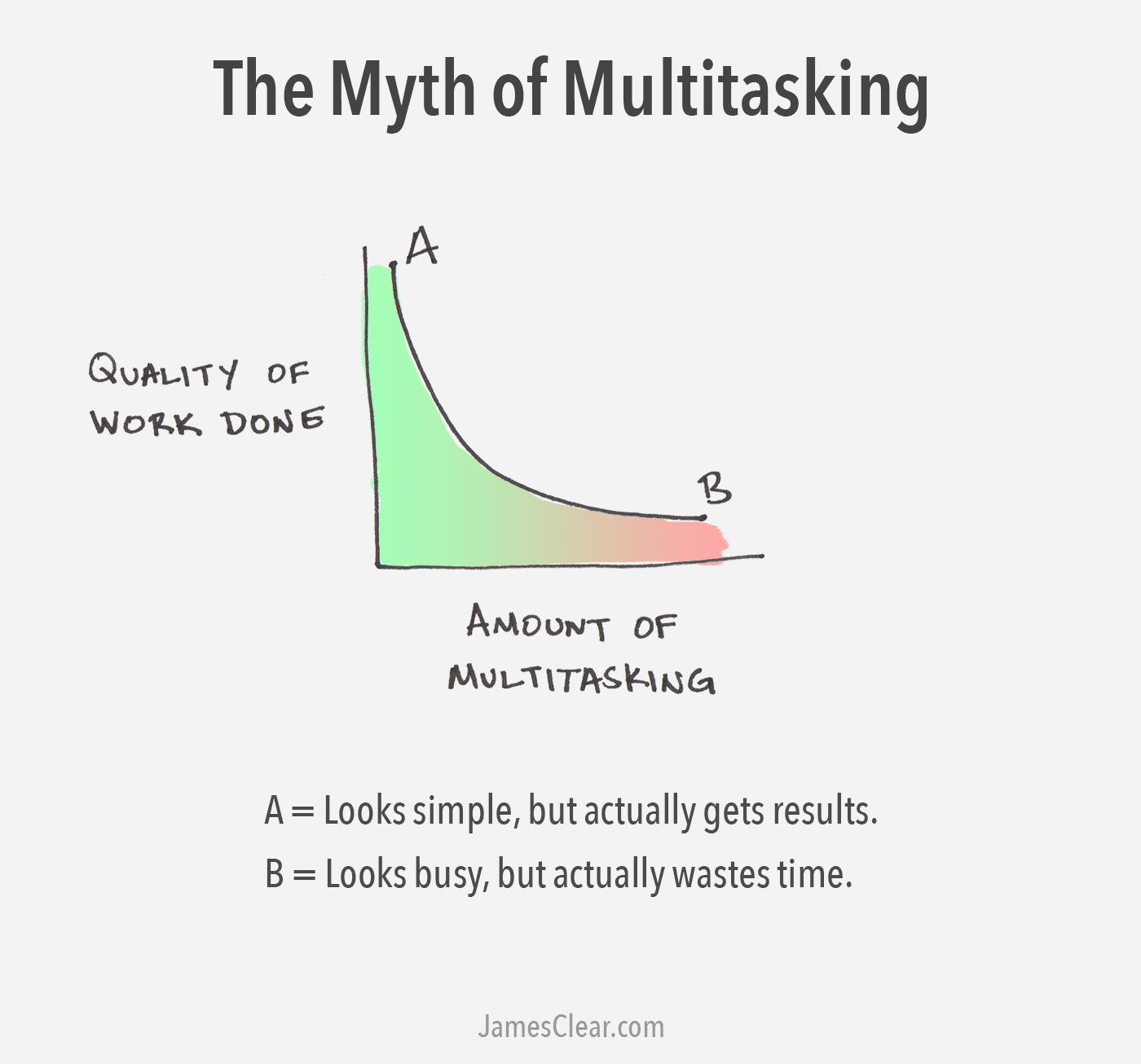The Ultimate Guide to Improving Focus: 7 Science-Backed Strategies for 2025
In our increasingly distracted world, the ability to maintain deep focus has become a superpower. Research from Harvard Business Review (2024) reveals that the average professional now switches tasks every three minutes, leading to significant productivity loss. This ultimate guide to improving focus combines cutting-edge neuroscience with practical strategies that actually work.
Why Focus Matters More Than Ever in 2025
Modern work environments present unprecedented challenges to concentration. According to Stanford researchers, constant digital interruptions cost businesses an estimated $650 billion annually in lost productivity. The ability to focus deeply isn't just about getting more done—it's about producing higher quality work, reducing stress, and achieving meaningful progress toward your most important goals.
The Neuroscience of Concentration: How Your Brain Focuses
Understanding how focus works neurologically helps explain why certain strategies are more effective than others. Focus occurs when your prefrontal cortex—the brain's executive center—successfully filters out irrelevant information while directing attention to what matters most.
What Focus Really Means
True focus requires both selection and elimination. As productivity expert Tim Ferriss explains, "What you don't do determines what you can do." When you commit to one task, you're simultaneously saying no to countless other possibilities. This selective attention activates your brain's task-positive network while suppressing the default mode network responsible for mind-wandering.
The Real Reason You Can't Concentrate
Most people don't struggle with focus itself—they struggle with decision-making. When faced with multiple options, our brains often default to distraction rather than making difficult choices about what deserves our attention. University of California research (2023) shows that decision fatigue accounts for 42% of workplace focus issues.
The Multitasking Myth Exposed
Despite popular belief, true multitasking is neurologically impossible. What we call multitasking is actually rapid task-switching, which comes with significant cognitive costs. Each switch between tasks triggers what psychologists call "switching cost"—the mental energy required to reorient your attention. International Journal of Information Management studies found that it takes an average of 64 seconds to regain deep focus after checking email.
7 Proven Strategies to Improve Focus and Concentration
1. Master the Buffett Prioritization Method
Warren Buffett's famous "2 List" strategy provides a powerful framework for focused attention. Here's how it works:
- Write down your top 25 career or life goals
- Circle your five most important priorities
- Treat the remaining 20 as your "avoid at all costs" list
This method forces the difficult but necessary elimination of good-but-not-great opportunities, freeing mental energy for what truly matters.
2. Implement Progress Measurement Systems
Focus naturally diminishes without clear feedback. The things we measure are the things we improve. Create simple tracking systems for your key priorities:
- Daily word count for writing projects
- Time spent on deep work sessions
- Progress toward specific skill development
- Consistency in important habits
Measurement transforms abstract goals into tangible progress, maintaining motivation and concentration.
3. Embrace Process Over Outcomes
Successful people don't focus on singular events—they commit to consistent processes. Instead of "losing 20 pounds," focus on daily exercise and healthy eating. Rather than "writing a bestselling book," concentrate on your daily writing practice. Process-focused individuals experience less burnout and maintain motivation longer, according to Journal of Applied Psychology studies.
4. Design Your Anchor Task System
Each day, identify one non-negotiable priority that will move your most important project forward. This "anchor task" becomes the foundation around which you structure your entire day. The psychological power of committing to one primary objective naturally organizes your behavior and decision-making.
5. Optimize Your Energy Management
Your ability to focus fluctuates throughout the day based on your natural energy rhythms. Schedule demanding cognitive work during your peak energy periods and save administrative tasks for lower-energy times. Most people experience highest creative energy in the morning, making this ideal for strategic thinking and complex problem-solving.
6. Create Digital Distraction-Free Zones
Modern technology presents the greatest threat to sustained focus. Implement these digital boundaries:
- No email before 10 AM
- Phone-free work sessions
- Full-screen application mode
- Scheduled social media checks
Research from MIT (2024) shows that professionals who implement digital boundaries experience 37% longer focus periods.
7. Master Your Morning Focus Window
The first hours of your day offer unparalleled focus potential before external demands accumulate. Protect this precious time by:
- Eliminating morning meetings
- Delaying breakfast (intermittent fasting)
- Beginning work before checking communications
- Tackling your most important task first
Advanced Focus Techniques for High Performers
Environmental Optimization
Your physical environment significantly impacts concentration. Consider these evidence-based adjustments:
- Temperature: 72°F (22°C) optimizes cognitive performance
- Lighting: Natural light improves alertness by 15%
- Noise: Consistent background noise (like coffee shops) can enhance creativity
- Workspace: Clean, organized spaces reduce cognitive load
Cognitive Enhancement Strategies
- Pomodoro Technique: 25-minute focused sessions followed by 5-minute breaks
- Meditation: Just 10 minutes daily improves attention span by 16%
- Physical Movement: Brief walks restore mental energy and creativity
- Strategic Napping: 20-minute power naps boost alertness and memory
Common Focus Mistakes to Avoid
- Starting Without Clear Objectives: Begin each work session with specific goals
- Underestimating Transition Time: Allow 5-10 minutes to achieve deep focus
- Ignoring Physical Needs: Dehydration and hunger destroy concentration
- Fighting Natural Rhythms: Work with your energy patterns, not against them
- Multitasking During Breaks: True mental recovery requires complete disengagement
Your 7-Day Focus Improvement Plan
Day 1: Identify your peak focus hours and schedule important work accordingly
Day 2: Implement the Buffett method to clarify your top 5 priorities
Day 3: Design your anchor task system for daily focus
Day 4: Create digital boundaries (no email before 10 AM)
Day 5: Establish a progress measurement system
Day 6: Optimize your workspace for minimal distractions
Day 7: Develop a morning focus ritual
Frequently Asked Questions
How long does it take to improve focus?
Most people notice significant improvements within 2-3 weeks of consistent practice. Full habit formation typically requires 66 days according to European Journal of Social Psychology research.
Can focus be permanently improved?
Yes, focus functions like a muscle—it strengthens with consistent training. The neural pathways supporting concentration become more efficient with regular practice.
What's the biggest barrier to better focus?
Decision avoidance ranks as the primary focus killer. The inability to choose what deserves attention leads to scattered effort across multiple mediocre priorities.
How does age affect concentration abilities?
While processing speed may decline slightly with age, wisdom and experience often compensate through better prioritization and elimination of non-essential tasks.
Key Takeaways for Ultimate Focus Improvement
This ultimate guide to improving focus reveals that concentration isn't about working harder—it's about working smarter through strategic elimination, environmental design, and consistent practice. The most effective focus strategies combine neuroscience principles with practical implementation systems that fit modern work demands. By mastering these techniques, you'll not only accomplish more in less time but also experience greater satisfaction from producing meaningful, high-quality work.















